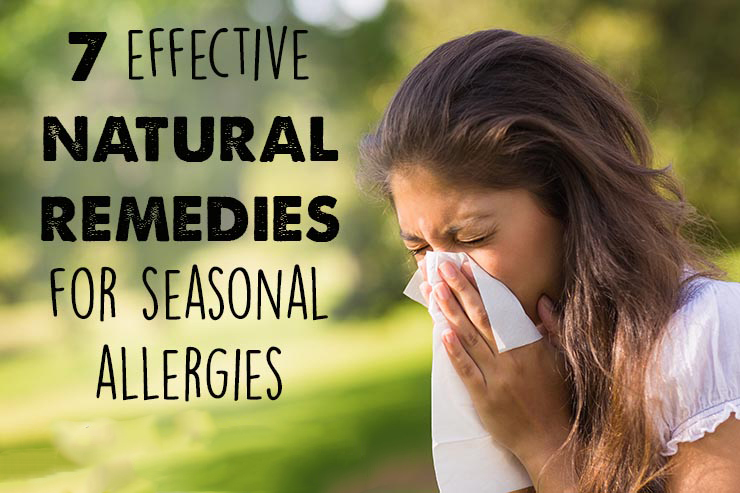Allergies are a frequent issue in many people, and the symptoms range from mild to serious. Many triggers, including dust, pollen, animal dander, or specific foods, can trigger allergies. In this comprehensive guide, we’ll examine the signs of allergies and explore natural remedies to alleviate them.
Allergies Symptoms: Identifying the Telltale Signs
Allergies can manifest in various ways, depending on the allergy and the individual’s immune system. The common symptoms include:
- Sneezing: Sneezing is a common allergic response, often triggered by irritants such as pollen or pet dander.
- Nasal stuffiness or runny nose: Allergens can cause the nasal passages to become congested or produce excess mucus, leading to a runny nose.
- Itchy and watery eyes: Irritation from allergens can result in itching and watering of the eyes, making them feel uncomfortable.
- Hives or skin rashes: Allergic reactions may lead to hives or skin rashes, characterized by red, raised, and itchy patches on the skin.
- Swelling of the face, mouth, lips, or tongue: Severe allergic reactions can cause swelling of the face, mouth, lips, or tongue, which may require immediate medical attention.
- Trouble breathing or wheezing: In some cases, allergies can affect the respiratory system, causing difficulty breathing or wheezing.
- Nausea or vomiting: Allergic reactions can also involve gastrointestinal symptoms such as nausea or vomiting.
Seasonal Allergies: Understanding the Triggers
Seasonal allergies, also known as hay fever or allergic rhinitis, are triggered by pollen and allergens present in the air during certain times of the year. The most common seasonal allergy triggers include:
- Pollen from trees: Trees release pollen in the spring, leading to symptoms such as sneezing, runny nose, and itchy eyes.
- Grass pollen: Grass pollen is prevalent during the summer months and can cause allergic reactions in susceptible individuals.
- Ragweed pollen: Ragweed is a common allergen in the autumn, causing symptoms similar to those of other seasonal allergies.
Allergy Treatment: Traditional vs. Natural Remedies
Traditional allergy treatments often include antihistamines, decongestants, and other medications aimed at relieving symptoms. However, natural remedies can also be effective in alleviating allergic reactions. Here are some organic solutions to treat allergies:
Saline Nasal Rinse
Saline nasal rinses help remove allergens that irritate the nose and sinuses, reducing inflammation and congestion. Mix one teaspoon of salt with 1/4 teaspoon of baking soda into eight fluid ounces of hot water to prepare a saline solution. Use a neti pot or a nasal spray bottle to administer the solution.
Honey
Local honey is believed to desensitize the immune system to allergens. Consuming one teaspoon of honey from your local area daily can gradually reduce allergic symptoms over time.
Quercetin
Quercetin is a natural antihistamine found in foods like apples, onions, and berries. It can also be taken as a supplement to help reduce histamine levels in the body.
Probiotics
Probiotics support immune function and reduce inflammation in the body, potentially easing allergy symptoms. Foods rich in probiotics include yogurt, kefir, and sauerkraut.
Essential Oils
Peppermint or eucalyptus essential oils can help open the airways and alleviate congestion. Add a few drops of essential oil to an oil carrier and apply it to the chest or use it in a diffuser.
Conclusion: Embracing Natural Remedies for Allergies
Allergies can be a frustrating and uncomfortable experience for many individuals, but natural remedies offer a holistic approach to symptom relief. From saline nasal rinses to local honey and probiotics, incorporating these organic solutions into your allergy management routine can help reduce inflammation and congestion, allowing for a more enjoyable life free from allergic discomfort.
FAQs (Frequently Asked Questions)
- Are natural remedies as effective as traditional allergy medications? Natural remedies can be effective for some individuals, but the results may vary. It’s essential to find the right combination of treatments that work for you.
- Can allergies develop at any age? Yes, allergies can develop at any age, although they often appear in childhood and adolescence.
- Is it safe to use essential oils for allergy relief? When used properly, essential oils can be safe and effective for allergy relief. However, it’s essential to dilute them and avoid direct contact with the skin.
- How long does it take for natural remedies to alleviate allergy symptoms? The time it takes for natural remedies to take effect varies from person to person. Some individuals may experience relief within a few days, while others may take longer.
- Can probiotics help with food allergies? While probiotics may help support overall immune health, more research is needed to determine their effectiveness specifically for food allergies.
- Are there any side effects of using natural allergy remedies? Natural remedies are generally safe, but some people may experience side effects such as gastrointestinal upset or allergic reactions. It’s essential to consult with a healthcare professional before starting any new treatment regimen.



